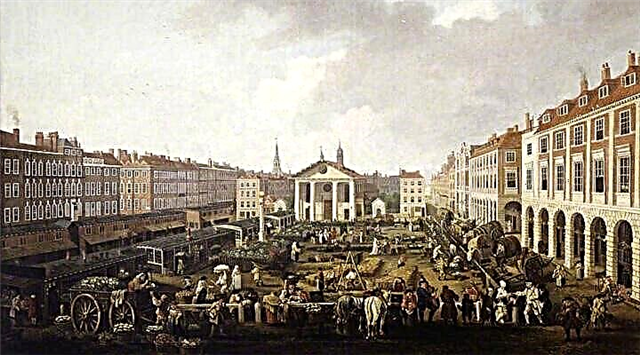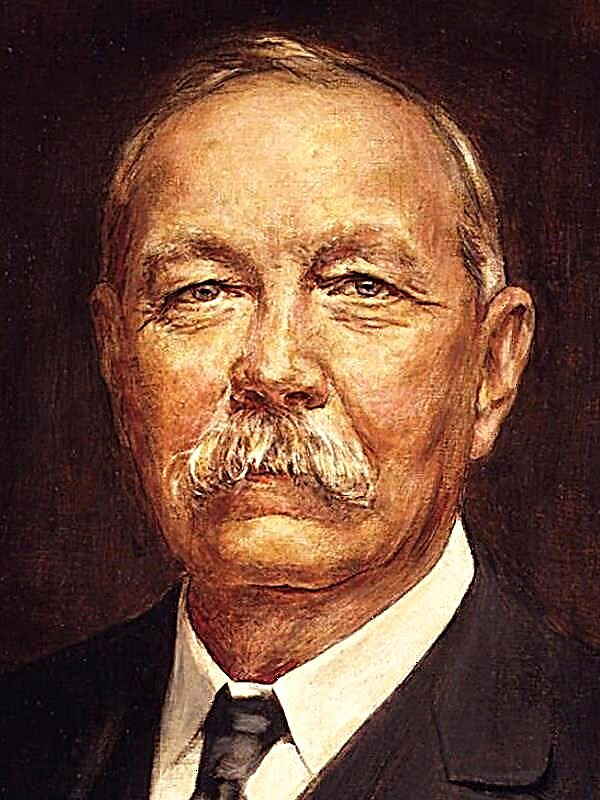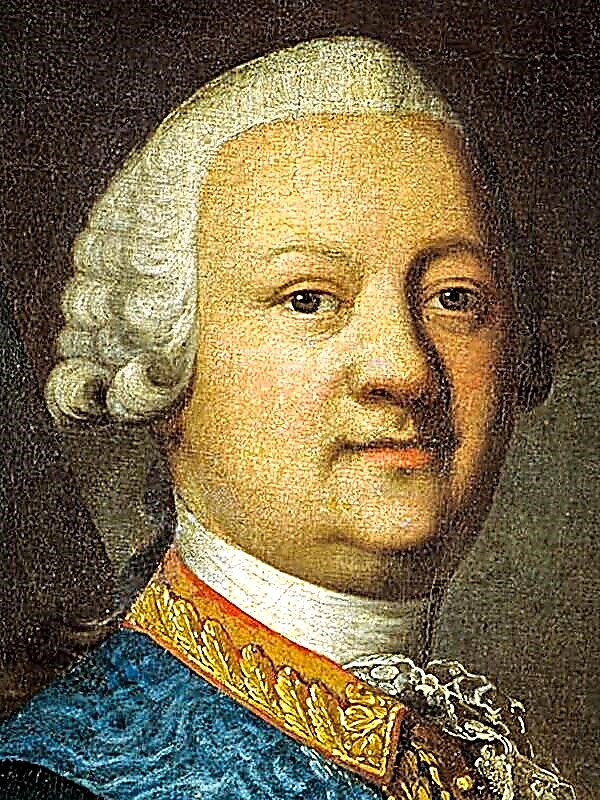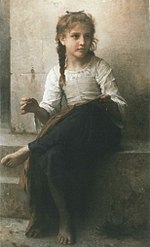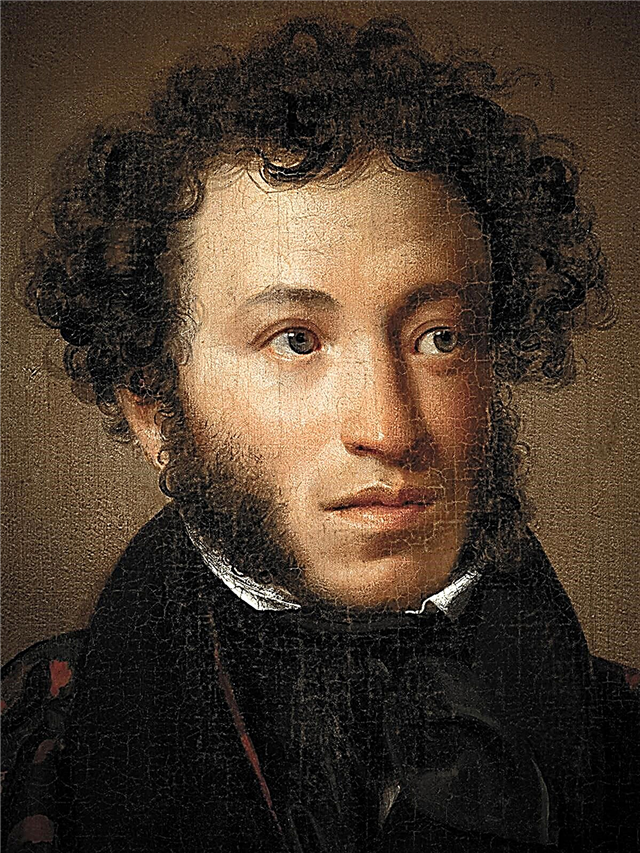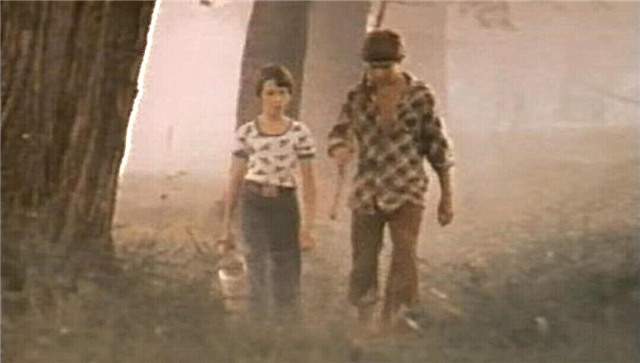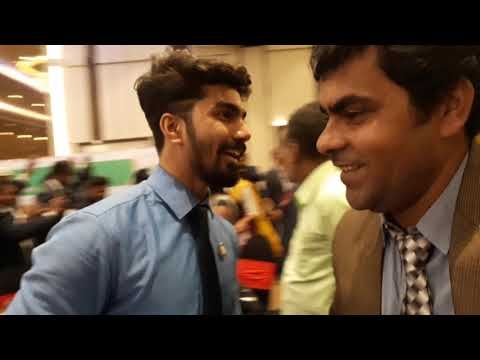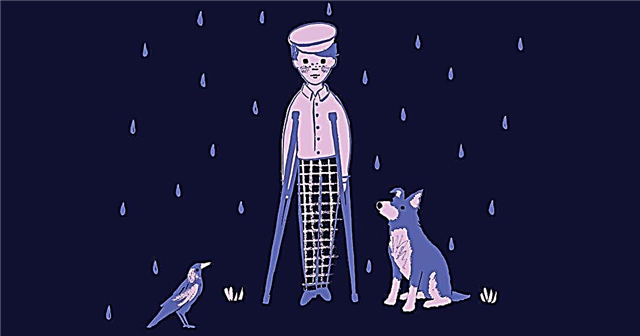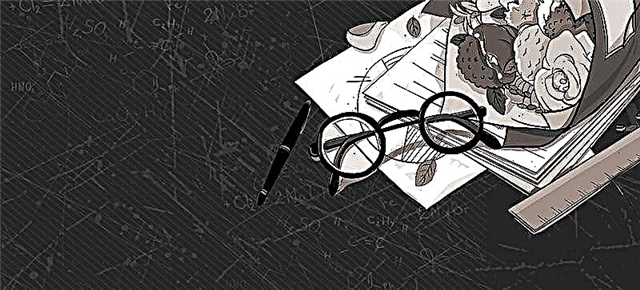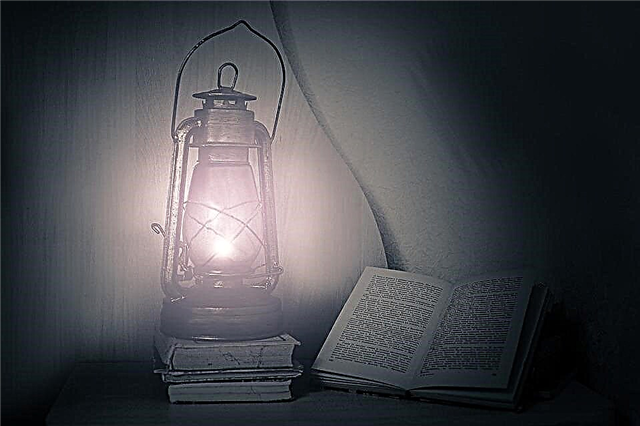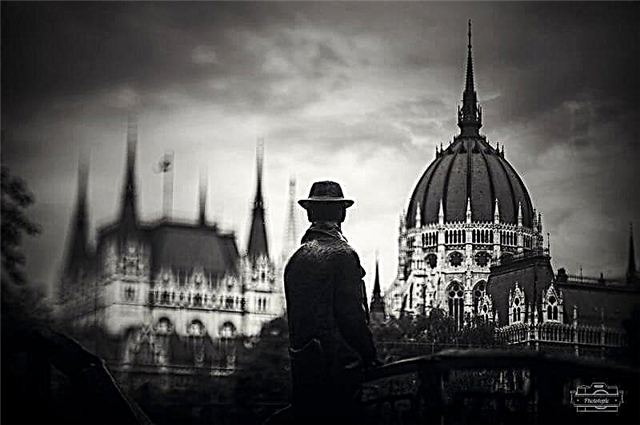“If you measure a person’s ability to prove himself, then there was something truly magnificent in Gatsby, some kind of heightened sensitivity to all the promises of life ... It was a rare gift of hope, a romantic fuse that I have never seen in anyone else.”
Nick Carraway belongs to the venerable prosperous family of one of the small towns of the Midwest. In 1915 he graduated from Yale University, then fought in Europe; After returning to his hometown after the war, he “couldn’t find a place for himself” and in 1922 leaned east to New York to study credit business. He settled in the suburbs: on the outskirts of the Long Island Strait two completely identical capes protrude into the water, separated by a narrow bay: East Egg and West Egg; in West Egg, between two luxurious villas, and a house was hid, which he rented for eighty dollars a month. In a more fashionable East Egg, his second cousin Daisy lives. She is married to Tom Buchanan. Tom is fabulously rich, he studied at Yale at the same time as Nick, and even then Nick was very unsympathetic to his aggressive-flawed manner of behavior. Tom began to cheat on his wife in his honeymoon; and now he does not consider it necessary to hide from Nick his connection with Myrtle Wilson, the wife of the owner of the gas station and car repair, which is located halfway between West Egg and New York, where the highway runs almost right up to the railway and a quarter mile away running next to her. Daisy also knows about her husband’s infidelity, it torments her; Nick’s impression from his first visit to them was that Daisy had to flee this house immediately.
On summer evenings, music is heard in Nick’s neighbor’s villa; on weekends, his Rolls Royce turns into a shuttle bus to New York, transporting huge numbers of guests, and a multi-seat Ford runs between the villa and the station. On Mondays, eight servants and a specially hired second gardener remove traces of destruction all day.
Soon Nick receives an official invitation to the party to Mr. Gatsby and turns out to be one of the very few invited: they did not wait for an invitation there, they just came there. No one in the crowd of guests is familiar with the host closely; not everyone knows him by sight. His mysterious, romantic figure arouses keen interest - and speculation is multiplying in the crowd: some claim that Gatsby killed the man, others - that he is a bootlegger, von Hindenburg’s nephew and the devil’s second cousin, and during the war he was a German spy. It is also said that he studied at Oxford. In the crowd of his guests, he is lonely, sober and restrained. The society that enjoyed Gatsby's hospitality paid him that they knew nothing about him. Nick meets Gatsby almost by accident: having talked with some man — they turned out to be fellow soldiers — he noticed that he was somewhat embarrassed by the position of a guest unfamiliar with the owner, and received the answer: “So it's me Gatsby.”
After several meetings, Gatsby asks Nick for a favor. Confused, he walks around for a long time, in order to prove his respectability he presents a medal from Montenegro, which he was awarded in the war, and his Oxford photograph; finally she says in a very childish way that Jordan Baker will state his request - Nick met her at Gatsby's house and met at his sister's house, Daisy: Jordan was her friend. The request was simple - to somehow invite Daisy to his tea, so that, supposedly by accident, as a neighbor, Gatsby could see her, Jordan said that in the fall of 1917 in Louisville, they were with Daisy's hometown, Daisy and Gatsby , then a young lieutenant, loved each other, but were forced to leave; he was sent to Europe, and after a year and a half she married Tom Buchanan.But before the wedding dinner, having thrown the groom's gift in the trash - a pearl necklace for three hundred and fifty thousand dollars, Daisy got drunk like a shoemaker, and, clutching a letter in one hand and a bottle of stashed in the other, begged her friend to refuse her name to the groom. However, she was shoved into a cold bath, allowed to smell ammonia, put a necklace on her neck, and she "got married like a sweet little one."
The meeting has occurred; Daisy saw his house (for Gatsby it was very important); the festivities in the villa ceased, and Gatsby replaced all the servants with others "who know how to be silent," because Daisy began to visit him often. Gatsby also met with Tom, who showed an active rejection of himself, his house, his guests and became interested in the source of his income, probably doubtful.
One day after lunch with Tom and Daisy, Nick, Jordan and Gatsby with the hosts go to have fun in New York. Everyone understands that Tom and Gatsby entered a decisive battle for Daisy. At the same time, Tom, Nick and Jordan ride in the cream Rolls-Royce of Gatsby, and he and Daisy are in Tom's dark blue Ford. Halfway there, Tom calls in to refuel with Wilson - he announces that he intends to leave forever and take his wife away: he suspected something was wrong, but he did not connect her with Treason. Tom goes wild, realizing that he can lose both his wife and his lover at the same time. In New York, an explanation took place: Gatsby tells Tom that Daisy does not love him and never loved him, he was just poor and she was tired of waiting; in response, Tom exposes the source of his income, which is truly illegal: bootlegging of a very large scope. Daisy is shocked; she tends to stay with Tom. Realizing that he won, on the way back Tom tells his wife to ride in a cream car with Gatsby; the others behind her in a lagging dark blue Ford. Having approached the gas station, they see the crowd and the body of the downed Myrtle. From the window she saw Tom and Jordan, whom she mistook for Daisy, in a large cream car, but her husband locked her and she could not come; when the car returned, Myrtle, freed from the castle, rushed to her. Everything happened very quickly, there were practically no witnesses, the car did not even slow down. Nick learned from Gatsby that Daisy was driving.
Gatsby stayed under her windows until morning to be there if she needed to. Nick looked out the window - Tom and Daisy were sitting together, as if they were one thing - spouses or maybe accomplices; but he didn’t have the courage to take away Gatsby’s last hope.
It was only at four in the morning that Nick heard a taxi with Gatsby pull up. Nick did not want to leave him alone, and since that morning Gatsby wanted to talk about Daisy, and only about Daisy, it was then that Nick learned the strange story of his youth and his love.
James Getz - that was his real name. He changed him at seventeen when he saw Dan Cody's yacht and warned Dan about the storm. His parents were simple farmers - in his dreams, he never recognized them as his parents. He invented Jay Gatsby in full accordance with the tastes and concepts of a seventeen-year-old boy and remained faithful to this invention until the very end. He recognized women early and, spoiled by them, learned to despise them. Confusion reigned in his soul; he believed in the unreality of the real, in that the world rests firmly and reliably on the wings of a fairy. When he stood on the oars and looked up at the white hull of Cody’s yacht, it seemed to him that everything beautiful and amazing that was in the world was embodied in it. Dan Cody, a millionaire who made a fortune in Nevada’s silver mines and Montana oil operations, took him on a yacht — first a steward, then he became a senior assistant, captain, secretary; five years they swam around the continent; then Dan died. From the inheritance of twenty-five thousand dollars that Dan left him, he did not receive a cent, and did not understand, by virtue of what legal intricacies. And he remained with what gave him a peculiar experience of these five years: the abstract scheme of Jay Gatsby clothed himself in flesh and blood and became a man.Daisy was the first "girl from society" on his way. From the first time, she seemed to him dizzyingly desirable. He began to visit her house - first in the company of other officers, then alone. He had never seen such a beautiful house, but he well understood that he was not rightfully in this house. The military uniform, which served as his invisible cloak, could fall off his shoulders at any moment, and under him he was just a young man without a clan and tribe and without a penny in his pocket. And so he tried not to waste time. He probably expected to take what was possible and leave, but it turned out that he doomed himself to the eternal service of the shrine. She disappeared in her rich house, in her rich, brimming with life, and he was left with nothing - except for the strange feeling that they are now husband and wife. With stunning clarity, Gatsby comprehended the mystery of youth in captivity and under the protection of wealth ...
His military career was a success: at the end of the war he was already a major. He was eager to go home, but because of a misunderstanding he ended up in Oxford - anyone from the armies of the victorious countries could attend a course at any university in Europe for free. In the letters, Daisy was filled with nervousness and longing; she was young; she wanted to arrange her life now, today; she needed to make a decision, and for it to come, some kind of power was needed - love, money, undeniable benefits; Tom arose. Gatsby received the letter back in Oxford.
Saying goodbye to Gatsby this morning, Nick, already departing, shouted: “Nothing at nothing, that's who they are! You alone stand them all together! ” How glad he was then that he said these words!
Not hoping for justice, distraught Wilson came to Tom, learned from him who owned the car, and killed Gatsby, and then himself.
The funeral was attended by three people: Nick, Mr. Goetz - the father of Gatsby, and only one of the many guests, although Nick phoned all the regulars at Gatsby parties. When he called Daisy, he was told that she and Tom had left and had not left an address.
They were careless creatures, Tom and Daisy, they broke things and people, and then ran away and hid for their money, their all-consuming carelessness or something else that their union rested on, leaving others to clean up after them.

